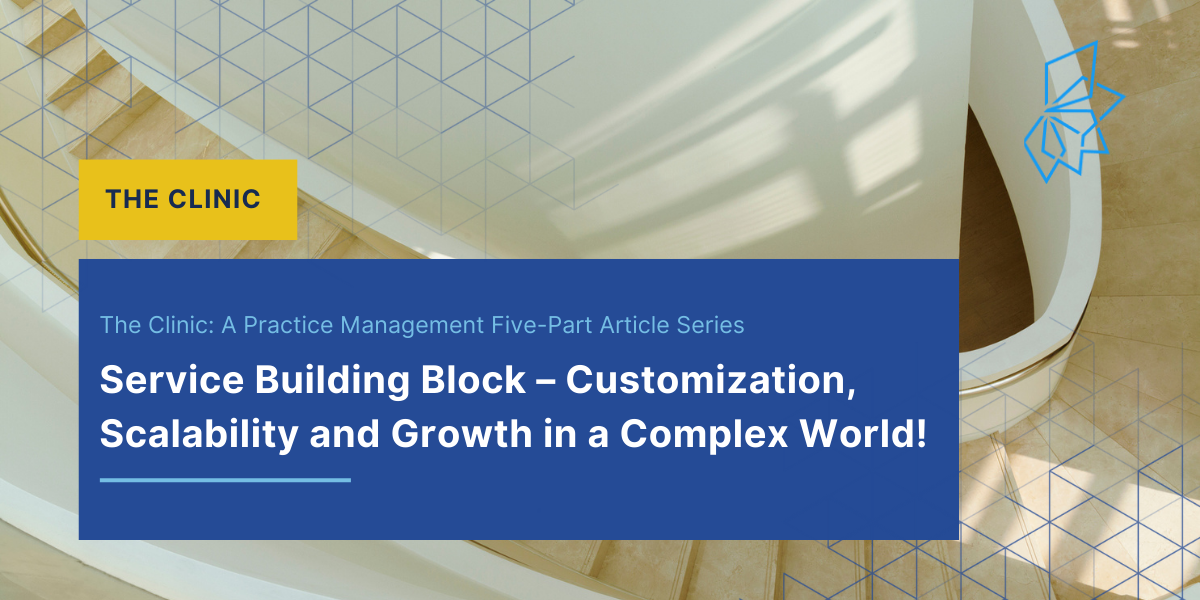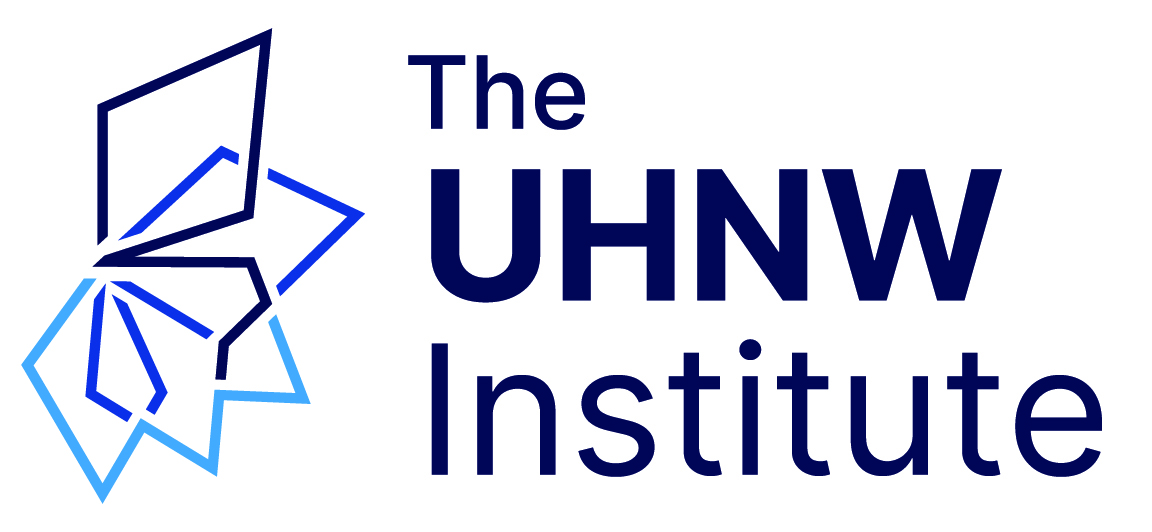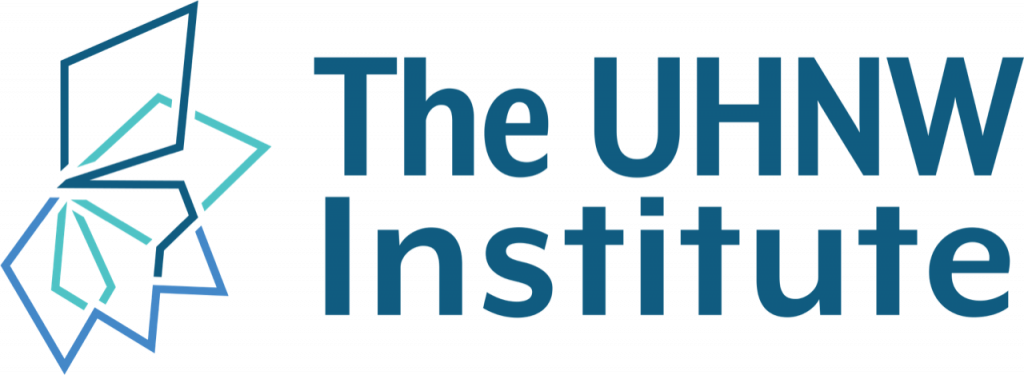
Welcome to The UHNW Institute’s ‘The Clinic,’ a new five-part series aligning with thought leadership and lessons learned from our bi-monthly Practice Management Clinics. The virtual Clinics allow Institute members to explore the group’s priorities among the building blocks of practice management, building new skills and operationalizing best practices.
This Institute initiative organizes the ‘Building Blocks’ of Practice Management along four main pillars: human capital, service, sales & marketing and business management with an additional section dedicated to technology.
This article features ideas, topics and challenges stemming from the Practice Management Clinic held on March 13, 2024, which focused on the Practice Management Building Block of Service.
We invite members to add your thoughts, insights and suggested resources to the topics listed below, by participating in the Institute Community Forum discussion on Service here.
To learn more about our ongoing practice management clinic sessions click here.
Please note: Topics, recommendations, lessons learned and best practices described below came from the discussion of industry professionals with expertise working in the field for at least two or more decades. The information is shared for informational purposes only; we make no representation or warranty of any kind, express or implied, regarding the accuracy, adequacy, validity, reliability or completeness and your reliance on any information is solely at your own risk.
Practice Management: Service Building Block – Customization, Scalability and Growth in a complex world!
By: Rich Lunsford, President and CFO, Mill Creek Capital Advisors, LLC and member of the Practice Management Committee, The UHNW Institute
At our recent May gathering, the practice management clinic welcomed colleagues from McKinsey to discuss the current state of the wealth management industry. The presentation highlighted the sector’s substantial appeal and profitability, with an annual revenue of approximately $280 billion and impressive 25% profit margins. Despite debates over fee compression, the industry’s rising growth continues to attract significant investments from both strategic and private equity sources. The business case for the wealth management model is strong: many clients increasingly recognize the value of expert advice for navigating complex financial scenarios, emphasizing the industry’s vitality and have “outgrown” outdated investment models. Continued growth of the industry is at risk however, as the primary challenge lies in scaling services to efficiently meet the intricate and custom needs of Ultra High Net Worth (UHNW) clients.These clients have complex balance sheets, unique investments, and preferences for reporting that may lie outside of standard technology and they need advice across a range of areas, beyond just investments This raises a critical question: how do we sustain our growth while balancing high-touch, difficult-to-scale service offerings?
Client Demands: High Standards & Shifting Preferences
Family preferences are distinctly shifting, reflecting a heightened demand for comprehensive family office services. Traditionally, wealth management firms focused primarily on investment management as their core business practice. However, as the complexity of investments, family trust and partnership structures, and the need for timely, consolidated reporting have increased, the scope of required services has broadened significantly. The definition of “client” has expanded to include future generations, thus increasing the frequency of meetings and the breadth of needs for the families they serve. UHNW clients now seek much more than traditional asset management; they demand customized reporting, sophisticated planning and advice and meticulous oversight of their unique investments. This shift underscores the need for tailored services that specifically cater to the personalized needs of these clients, who expect not only excellence in investment management but also a holistic approach to the stewardship of their family’s wealth.
Customization: How Much Is Necessary
As client demands evolve, the issue of how much customization is necessary becomes increasingly important. Clients request personalized deliverables tailored to their specific needs. It’s also possible that UHNW advisors introduce advanced customization proactively, even when not explicitly requested by clients. This preemptive customization incorporates sophisticated techniques and insights gained from serving other affluent families, which, while beneficial, can lead to unnecessary service creep. This escalation of services may create an unnecessary strain on the firm’s service teams. Firms are challenged to find the right balance for their clients and firm culture. It’s important to educate both advisors and clients towards new perspectives that may be more standardized but equally insightful. This balance ensures clients feel valued and understood but also maintains the advisors’ ability to deliver high-quality service without compromising their operational efficiency.
Segmentation: Is it doable?
The industry experts recommend segmenting wealth management clients into tiered groups, designed to enhance service efficiency and scalability, allowing firms to meet the diverse needs of clients with specialized services while offering more standardized options to those clients in lower segment tiers. This is not a simple task to implement: challenges such as perceived neglect by lower-tier clients, the complexity of managing multiple service levels, and the potential confusion during transitions between tiers must be carefully managed. Overcoming these hurdles involves clear communication and robust support to reinforce the value of provided services. Firms should handle transitions thoughtfully, ensuring transparent dialogue about changes and their benefits. By integrating client feedback into continuous service refinement, firms can effectively balance the benefits and challenges of segmentation to sustainably grow their business.
Implement Processes
Process is crucial. Standardizing certain operations and implementing client service calendars can help ensure consistent and high-quality interactions, regardless of which staff member is handling the task. These processes enable even junior members of the support team to confidently execute complex tasks by adhering to an established framework that upholds the firm’s service standards. This is beneficial not only for scaling the service model as the practice grows but also for ensuring that all client interactions are coherent and systematically aligned with the clients’ expectations and needs. Repeatable processes, such as scheduled reviews, regular updates, and predefined communication protocols, contribute to a structured service delivery that maximizes efficiency while minimizing the potential for errors. This structured approach is particularly crucial in scenarios where the stakes are high and the demands are intricate, requiring meticulous attention to detail in every client interaction. Additionally, this helps to ensure that firms can meet compliance processes and procedures with the utmost care.
Team Staffing for Highly Specialized Skills
Structuring an advisory and service team to effectively serve UHNW clients involves assembling a diverse group of experts, each with specialized skill sets tailored to the expansive needs of these clients. This team typically includes investment managers proficient in a wide range of asset classes and alternative investments, trust and estate planners, tax professionals, and client educators who focus on financial literacy for the next generation. Additionally, specialists in cash flow management and bill payment are crucial to manage the day-to-day financial operations that UHNW clients often require. The challenge in building such a comprehensive team internally lies in the rarity and high cost of these specialized skills. Each role demands not only a deep understanding of specific financial areas but also an ability to integrate these services into a cohesive strategy that addresses the unique preferences and complex situations of UHNW clients. This often leads firms to question whether to develop these capabilities in-house or to partner with external experts who can provide the necessary services efficiently and at scale, ensuring that the client’s expansive and detailed needs are met seamlessly.
Don’t Go It Alone: Outsourcing Is Important
As we look towards the future, it’s becoming increasingly clear that advisory firms must adopt a “don’t go it alone” approach. Over the next decade, the emphasis will be on forging strategic partnerships with specialized groups to elevate service offerings. These collaborations are essential for assembling high-touch, highly customized services that are finely tuned to meet the specific demands of clients. Additionally, incorporating advanced technology will play a crucial role in enhancing these partnerships, enabling more efficient service delivery and a seamless client experience. By leveraging external expertise in areas such as tax preparation, bill payment, and concierge services alongside cutting-edge technological solutions, firms can provide an integrated and sophisticated service environment. This cooperative and technologically enhanced strategy is key to evolving and thriving in the changing landscape of financial advisory services.

